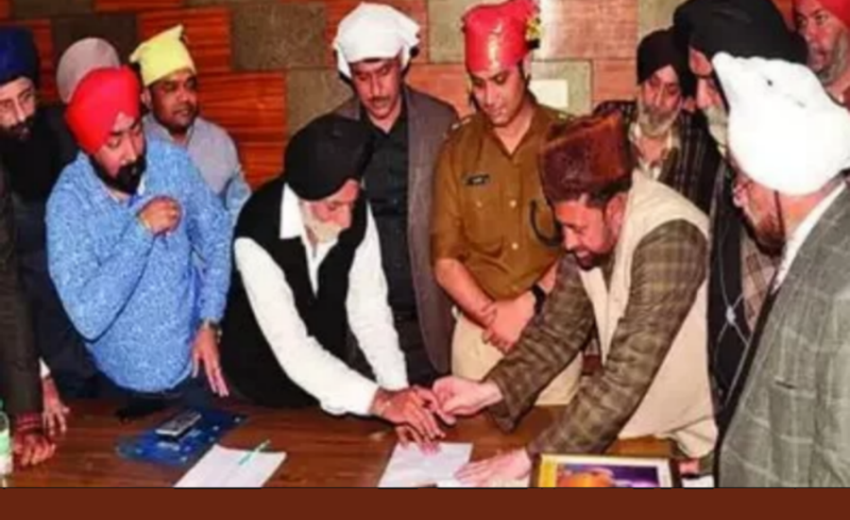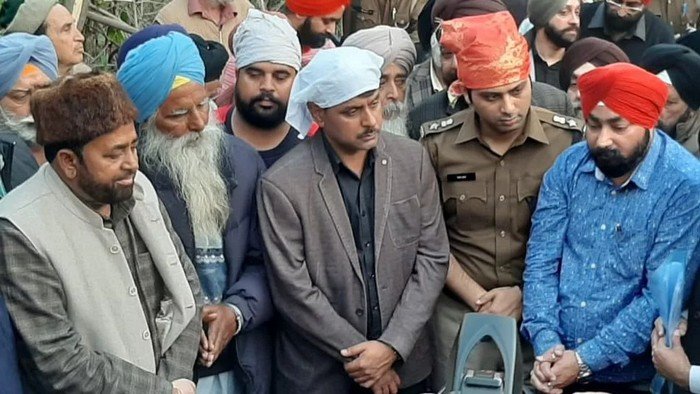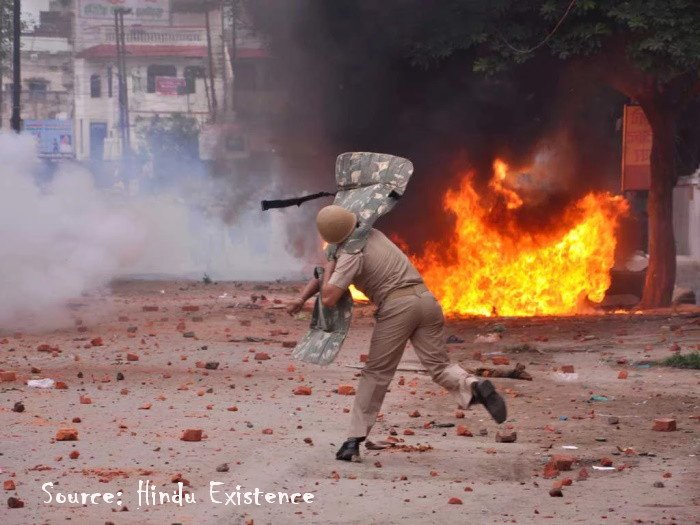Muslims and Sikhs in Western Uttar Pradesh's Saharanpur have brought an end to a 10-year-old land dispute.
The dispute involved a plot of land adjoining a Gurdwara not far from Saharanpur railway station. The Gurdwara committee had purchased the land for expanding the Gurdwara complex. But the old structures on the plot were demolished and this is said to have included an old mosque.
The dispute had reached the Supreme Court. But the Muslim party gave up its claim. In return, Sikhs decided to give Muslims an alternate plot of land.
But now the Muslims have decided to forgo this as well, out of gratitude for the help given by Sikhs to the people affected by the communal violence in Northeast Delhi, as well as the solidarity extended by the community to protests against the Citizenship Amendment Act.
Sikh-Muslim Harmony
"In view of the great service and support rendered by the Sikhs to Muslims in Delhi throughout the protests and most recently during the riots in Delhi, the Masjid committee in Saharanpur decided to give up its claim over the land as a token of gratitude and thanksgiving," said Nizam Pasha, who represented the Muslim side in the Supreme Court.
According to Muharram Ali, the petitioner for the Muslim side, Sikhs are doing God's work.
"Sikhs stand for humanity. They help people in need. The helped people affected by the communal violence in Delhi. This is God's work," the Muslim petitioner Muharram Ali told The Quint.
Muharram Ali and several local Muslims also participated in the Karsewa for the construction of the Gurdwara earlier this week.
“We are extremely happy that Muslims came for the Karsewa of the Gurdwara. Even though the dispute was going on since 2010, we didn’t want it to harm relations between the two communities,” said Sunny, the representative from the Sikh side.
In 2014, the dispute led to violence in Saharanpur. But years later, the relations between the two communities improved.
“We wanted to build a place of worship there, they wanted the same. Neither was fighting for selfish reasons,” Sunny said.


